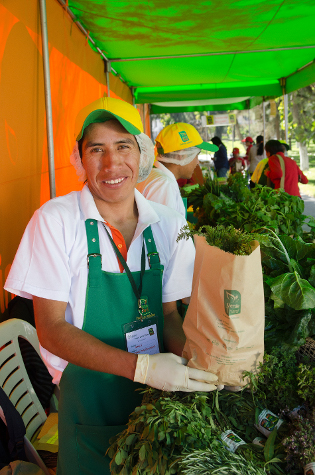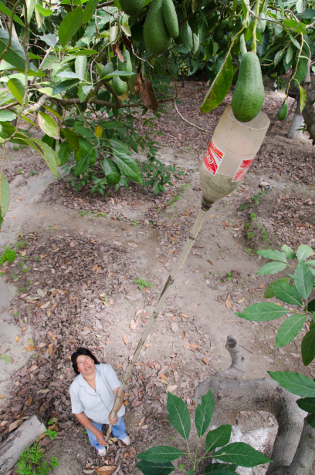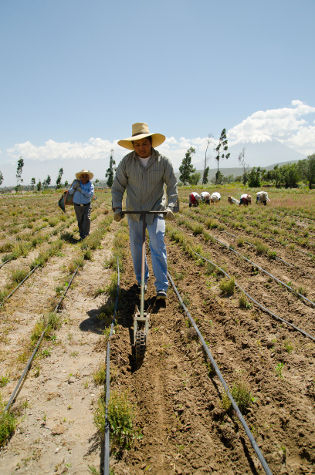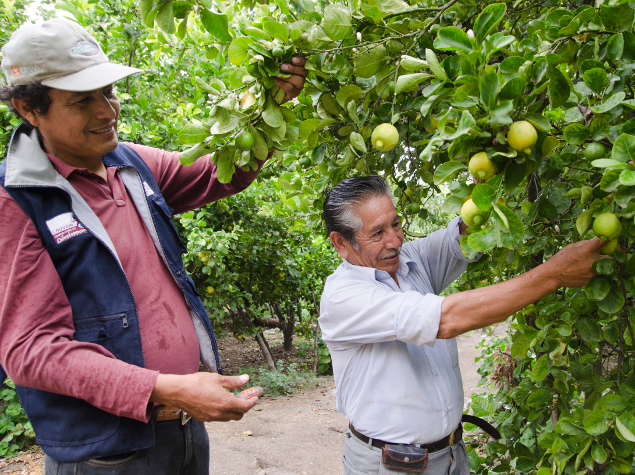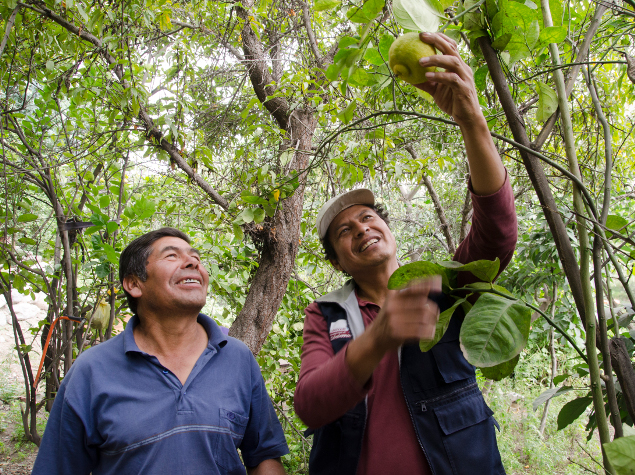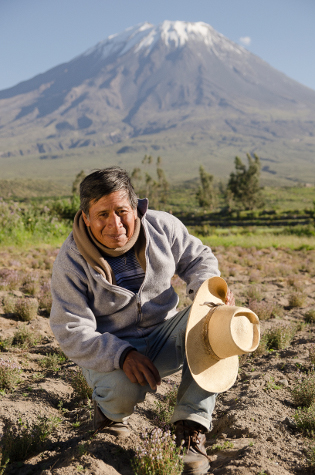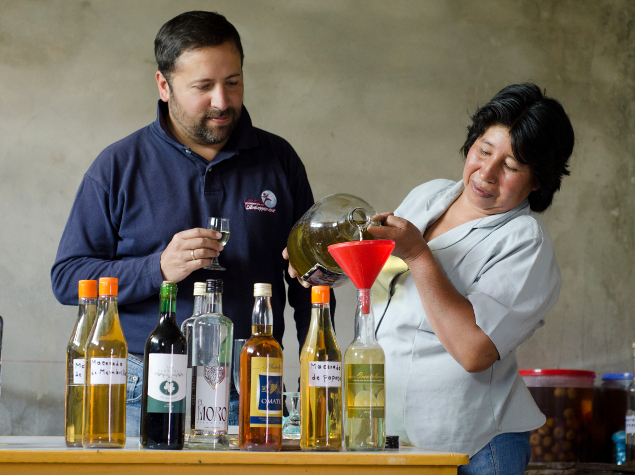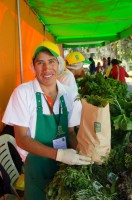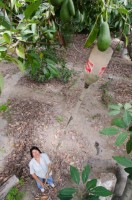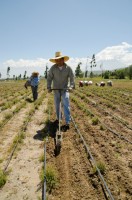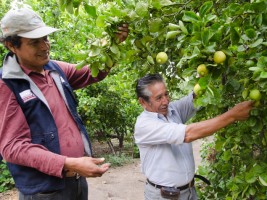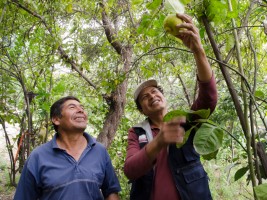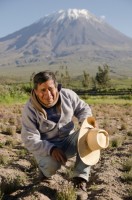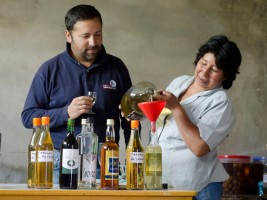Organic farming: a sustainable solution to hunger and poverty
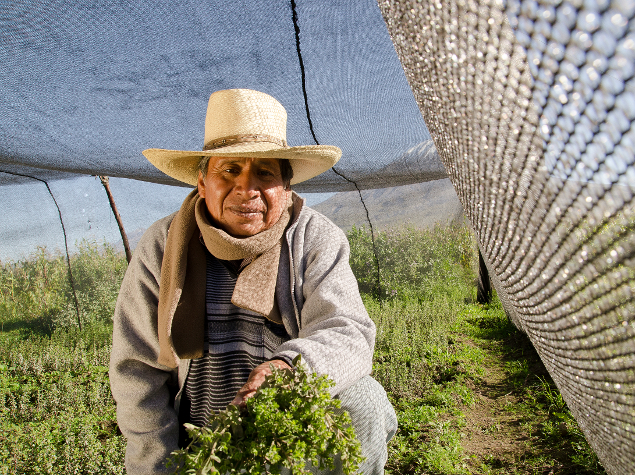
The main objective of this project is to enable 1 470 families (7 350 people) living in the south of Peru to increase their income by starting up or developing organic farming as an income-generating activity. As members of small producers’ associations and two irrigation users’ committees, the families concerned live mainly from milk, fruit and herb production.
Since 2005, Louvain Cooperation has been working in the region with two partners: El Taller and CEDER. Thanks to this collaboration, great progress has already been made in developing agricultural value chains. In this way, most of the farming families concerned have seen their income increase by over 75%.
The Government of Peru has recently drawn up a set of regulations and institutional framework that enable public resources to be allocated to the development of farmers’ economic activities. However, producers’ organizations suffer from their limited ability to establish business plans and other development activities as well as from the absence of procedures put in place by the authorities to implement such mechanisms.
In order to achieve the project goals, various intermediate objectives have been set, such as:
- Increasing productivity. Small agricultural producers diversify their sources of income and strengthen their production and processing capacities via training and technical support; a market information system is developed (monitoring of production and sales prices); infrastructure and facilities are improved. The average family income is expected to increase by 20%.
- Improving natural resources management and promoting an environmental approach. To this end, various initiatives will be implemented: training in water resources management and organic farming; incorporating Environmental Risk Management into the annual program and budget; replacing traditional gravity irrigation systems with drip-fed systems. The area of organically certified farmland is expected to double, rising from 106 hectares to 200 hectares in 2016.
- Fostering innovation and entrepreneurship. To this end, six technological innovations will be implemented in the agricultural activities supported. The project will also aim to develop a sustainable enterprise and entrepreneurship culture among the producers.
- Encouraging the replication and sustainability of the project through a participatory approach. To this end, the project partners will focus on the capitalization of experience and learning, support for the authorities in setting up services for the producers, building the farmers’ capacity to find funding as well as the development of research projects. Twenty projects over three years are expected to be submitted by the producers and directly funded by the local authorities.
- Increasing women’s representation. This aspect will be a particular focus of the project as women suffer from violence, from an unemployment rate 1% to 1.5% higher than that of men and from low average earnings. Women’s involvement in the running of producers’ associations – the objective is to achieve parity – is important for improving their living conditions.
The quality of the environment – soil and water quality in particular – will be positively impacted by the development of organic farming. The systematic use of organic inputs will make it possible to reduce dependence on chemical products and lessen their adverse impact on the environment (soil, water, health, etc.).
The increase in household revenue will contribute to improving the quality of life (particularly by maintaining the ‘health capital’) of the target populations as well as developing their cultural capital. Finally, children and teenagers will attend school for longer, and in greater numbers.
Final Report Summary
The project has yielded significant improvements in the local communities’ quality of living, as well as in the sustainable management of natural resources.
- It has generated a dramatic improvement in the quality of life of the targeted populations as demonstrated by an average increase of the family income of 22%. Increased productivity has also driven up profitability of the products by 27.2% by the end of the project.
- Significant results have also been attained with regards to natural resource management as 139 ha have been certified as organic farmlands. Furthermore, 128 ha have transitioned from a gravity irrigation system to a drip irrigation system.
- Fostering entrepreneurship has allowed for 12 innovative technological practices to be implemented to improve production processes, reduce costs, and allow more profitable agricultural techniques.
- Through the co-management and participatory approach of the project, local producers have implemented 29 projects which were directly financed by the municipalities.
- Lastly, women’s participation in the decision-making process has increased by 50%.
Read the testimonies of the Burgos brothers and of Hermosinda Vejarano de Portugal and Luisa Tejada García, Louvain Cooperation program beneficiaries.

